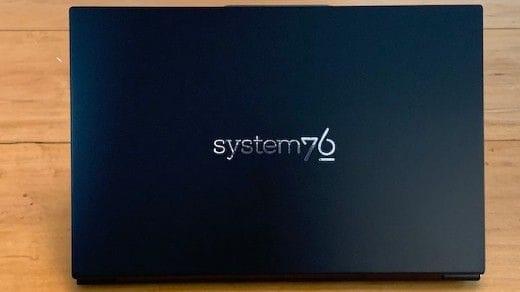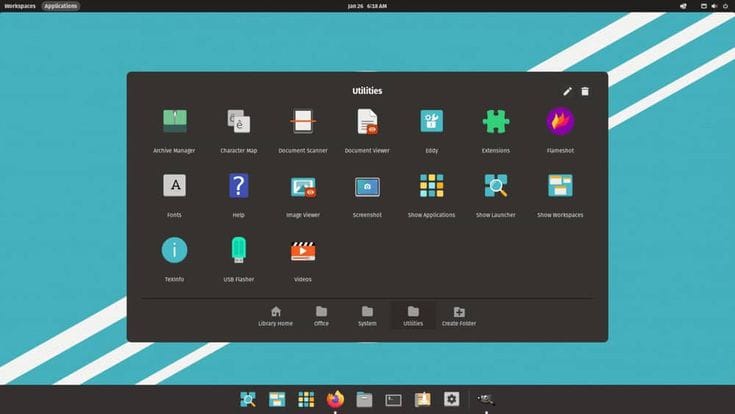System76: The Linux Laptop Nobody Talks About
While System76 remains underappreciated, its impact on the Linux ecosystem is undeniable. As demand for open-source computing grows, System76 may eventually receive the recognition it deserves.

System76 is a name that resonates deeply within the Linux community, yet it remains relatively unknown in mainstream computing discussions. Based in Denver, Colorado, System76 has been a pioneer in Linux-based laptops, desktops, and servers, offering hardware optimized for open-source software. Unlike major brands such as Dell, HP, or Apple, System76 focuses exclusively on Linux, providing users with a computing experience free from proprietary restrictions. This article explores the history of System76, its commitment to Linux, design and build quality, OS customization, Linux distributions, and why it remains underappreciated despite its innovations.
History of System76
Founded in 2005, System76 was created with a singular vision: to provide high-performance computers that run Linux out of the box. At the time, Linux users often struggled with hardware compatibility issues, forcing them to manually configure drivers and software. System76 aimed to eliminate these hurdles by designing machines specifically for Linux, ensuring seamless integration.
Initially, System76 offered Ubuntu-based laptops, but in 2017, the company took a bold step by developing its own Linux distribution, Pop!_OS. This move allowed System76 to fine-tune the operating system for its hardware, providing an optimized experience for developers, engineers, and gamers.
In 2018, System76 expanded its commitment to open-source hardware by introducing Thelio, a line of custom-built desktop computers with open hardware schematics. This marked a significant milestone, as it allowed users to modify and improve their machines without proprietary restrictions.
Why Does System76 Make Linux Laptops?
System76’s dedication to Linux stems from its belief in user freedom, transparency, and customisation. Unlike Windows and macOS, which impose closed ecosystems, Linux offers complete control over the operating system. System76 embraces this philosophy by ensuring its hardware is fully compatible with Linux, eliminating the need for workarounds or driver installations.
Additionally, System76 recognizes the growing demand for Linux in professional fields such as software development, cybersecurity, AI research, and cloud computing. Many developers prefer Linux due to its powerful command-line tools, stability, and security. By providing Linux-first laptops, System76 caters to this niche market, offering machines that are optimized for coding, engineering, and creative workflows.
Design and Build Quality
System76 laptops are designed with functionality and durability in mind. While they may not have the sleek aesthetics of MacBooks or Dell XPS models, they prioritise performance, repairability, and customization.
Material and Construction
- Chassis: System76 laptops typically feature aluminium or high-quality plastic builds, ensuring durability while keeping costs reasonable.
- Keyboard: The keyboards are mechanically satisfying, with deep key travel and customizable RGB lighting.
- Cooling System: Advanced thermal management ensures efficient heat dissipation, preventing overheating during intensive workloads.
- Port Selection: Unlike many modern laptops that sacrifice ports for thinness, System76 laptops include USB-A, USB-C, HDMI, Ethernet, and SD card slots, catering to professionals who need diverse connectivity options.
Repairability and Upgradability
One of System76’s standout features is its commitment to repairability. Unlike brands that solder components, System76 ensures that RAM, storage, and batteries are user-replaceable, extending the lifespan of its devices.
OS Customisation: The Power of Pop!_OS
System76’s Pop!_OS is one of the most customisable Linux distributions, designed to enhance productivity and gaming performance.
Key Features of Pop!_OS
- Optimised Performance: Pop!_OS is fine-tuned for System76 hardware, ensuring smooth driver integration and efficient resource management.
- Auto-Tiling Window Manager: The built-in auto-tiling feature allows users to organize windows efficiently, improving multitasking.
- Gaming Support: Pop!_OS includes built-in support for NVIDIA GPUs, making it one of the best Linux distributions for gaming.
- Privacy and Security: Unlike Windows, Pop!_OS does not include telemetry tracking, ensuring user data remains private.
System76 also provides firmware updates through open-source tools, allowing users to customise BIOS settings without proprietary restrictions.

Linux Distributions on System76 Laptops
While Pop!_OS is the default OS, System76 laptops support multiple Linux distributions, including:
- Ubuntu: A beginner-friendly Linux distro with extensive community support.
- Fedora: A cutting-edge distro favored by developers.
- Arch Linux: A highly customizable distro for advanced users.
- Debian: A stable and secure distro used in enterprise environments.
System76 ensures full compatibility with these distributions, allowing users to install and configure their preferred OS without hardware limitations.
Pop!_OS vs Ubuntu
Pop!_OS and Ubuntu are both Linux distributions, but they cater to different user needs and experiences. Here’s a breakdown of their differences:
1. Purpose and Target Audience
- Ubuntu: A general-purpose Linux distribution designed for ease of use, making it ideal for beginners and enterprise environments.
- Pop!_OS: Developed by System76, Pop!_OS is optimized for performance, customization, and productivity, particularly for developers, engineers, and gamers.
2. User Interface and Experience
- Ubuntu: Uses the GNOME desktop environment with a custom dock and UI modifications.
- Pop!_OS: Also based on GNOME, but offers a cleaner, more streamlined experience with auto-tiling window management for better multitasking.
3. Software and Package Management
- Ubuntu: Supports Snap packages alongside traditional APT repositories.
- Pop!_OS: Does not use Snap by default, relying on Flatpak and APT, which some users prefer for better performance.
4. Performance and Gaming
- Ubuntu: Works well for general computing but may require manual tweaks for gaming.
- Pop!_OS: Optimized for gaming, with built-in NVIDIA driver support and better GPU management.
5. Security and Privacy
- Ubuntu: Includes telemetry tracking by default, though it can be disabled.
- Pop!_OS: No telemetry tracking, ensuring better privacy.
6. Customization and Workflow
- Ubuntu: Offers customization but requires additional tweaks for advanced users.
- Pop!_OS: Highly customizable, with Pop Shell for efficient window management and better workflow tools.
7. Hardware Compatibility
- Ubuntu: Works on a wide range of devices, including desktops, laptops, and servers.
- Pop!_OS: Primarily optimized for System76 hardware, but works well on most modern laptops.
Which One Should You Choose?
- If you want a stable, beginner-friendly OS, Ubuntu is a great choice.
- If you need better performance, gaming support, and customization, Pop!_OS is the way to go.
Why Doesn’t System76 Get More Recognition?
Despite its innovations, System76 remains under-appreciated in mainstream computing. Several factors contribute to this:
1. Niche Market
System76 primarily targets Linux users, a relatively small segment compared to Windows and macOS users. Since most consumers are accustomed to proprietary operating systems, Linux laptops do not receive the same level of attention.
2. Limited Marketing
Unlike major brands that invest heavily in advertising, System76 relies on word-of-mouth and community engagement. While this fosters a loyal user base, it limits mainstream visibility.
3. Higher Price Point
System76 laptops are premium Linux machines, often priced higher than mainstream Windows laptops. While they offer better customization and repairability, many consumers opt for cheaper alternatives.
4. Lack of Retail Presence
System76 laptops are not available in physical stores, making them less accessible to casual buyers. Since most purchases occur online, potential customers cannot test the devices before buying.
Conclusion
System76 is a trailblazer in Linux computing, offering high-performance laptops with unmatched customization and repairability. Its commitment to open-source software and hardware sets it apart from mainstream brands, making it a top choice for developers, engineers, and privacy-conscious users.
System76 does not currently offer direct shipping to India. However, individuals in India can purchase and import System76 products, but it may involve additional costs like customs duty. System76 mainly ships to North America, with some international shipping options. While a direct solution isn't available, options like Purism, which ships worldwide, can be explored, albeit with potential import costs.
While System76 remains underappreciated, its impact on the Linux ecosystem is undeniable. As demand for open-source computing grows, System76 may eventually receive the recognition it deserves.






